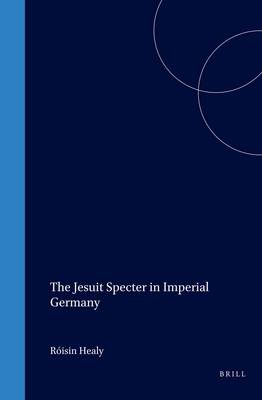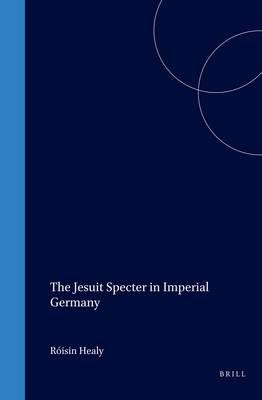
Bedankt voor het vertrouwen het afgelopen jaar! Om jou te bedanken bieden we GRATIS verzending (in België) aan op alles gedurende de hele maand januari.
- Afhalen na 1 uur in een winkel met voorraad
- In januari gratis thuislevering in België
- Ruim aanbod met 7 miljoen producten
Bedankt voor het vertrouwen het afgelopen jaar! Om jou te bedanken bieden we GRATIS verzending (in België) aan op alles gedurende de hele maand januari.
- Afhalen na 1 uur in een winkel met voorraad
- In januari gratis thuislevering in België
- Ruim aanbod met 7 miljoen producten
Zoeken
Omschrijving
From 1872 to 1917 legislation banned Jesuits from Imperial Germany. Believing the Jesuits sought to control the social, political, and religious realms, the Protestant bourgeoisie championed the ban and promoted a politics of paranoia against the Jesuits. By exploiting widespread fears of the "specter" of Jesuitism, Protestants pushed their own confessional, nationalist, and often liberal agenda. Author Roisin Healy charts the path of anti-Jesuitism against the background of society, politics, and religion in Imperial Germany. The core of the book is evenly divided between an analysis of the political struggle over the passage, gradual dilution, and eventual repeal of the Jesuit Law and the main themes of anti-Jesuitism: the order's internationalism, moral theology, and scholarship. This book will interest all scholars of modern Germany, particularly those specializing in religion, nationalism, liberalism, and political mobilization.
Specificaties
Betrokkenen
- Auteur(s):
- Uitgeverij:
Inhoud
- Aantal bladzijden:
- 266
- Taal:
- Engels
- Reeks:
- Reeksnummer:
- nr. 28
Eigenschappen
- Productcode (EAN):
- 9780391041943
- Verschijningsdatum:
- 26/12/2003
- Uitvoering:
- Hardcover
- Formaat:
- Genaaid
- Afmetingen:
- 233 mm x 157 mm
- Gewicht:
- 598 g

Alleen bij Standaard Boekhandel
+ 491 punten op je klantenkaart van Standaard Boekhandel
Beoordelingen
We publiceren alleen reviews die voldoen aan de voorwaarden voor reviews. Bekijk onze voorwaarden voor reviews.









